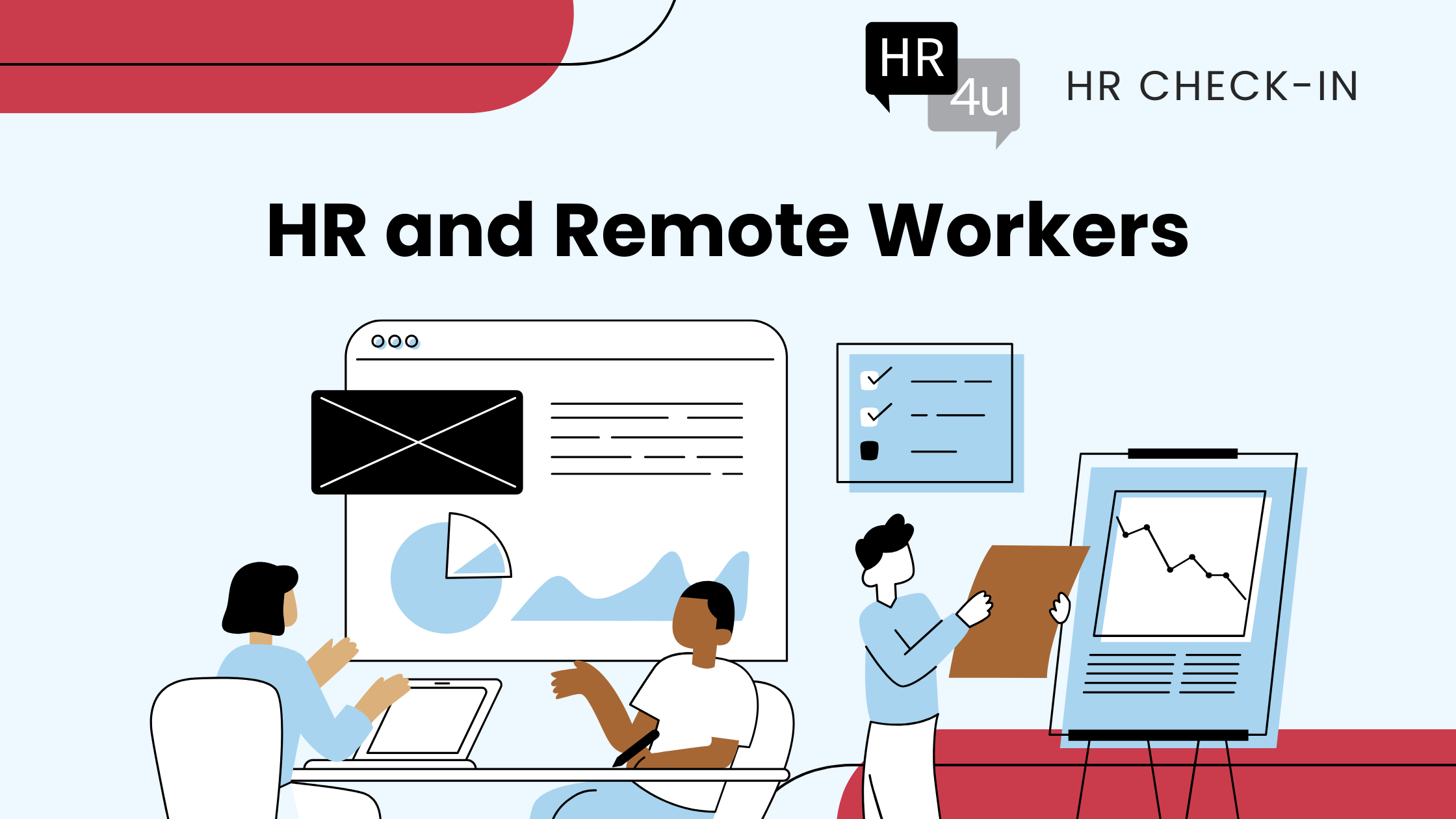Today, we’ll dive deeper into the topic of remote workers and how HR plays a crucial role for employers, managers, and employees in navigating remote working.
A couple of weeks ago, we began talking about remote work and its effects on employee wellbeing (to read that blog, click here). We discussed the impacts on employee mental health, work-life balance, and overall productivity of remote workers. Now that we’ve begun that conversation – How do we apply what we’ve learned to strategic remote worker plans using HR tools?
To effectively manage remote workers, employers and managers can utilize the following:
-
- Clear communication channels
- Regular check-ins
- Set clear expectations
- Goal setting and performance management
- Foster collaboration
- Provide necessary resources and support
- Encourage regular breaks and work-life balance
- Recognize and reward achievements
- Foster a sense of belonging
- Trust and autonomy
Effective management of remote workers requires adaptability, clear communication, and a focus on building trust and maintaining strong relationships.
But where do employers and managers begin to tackle these challenges to set the whole team up for success? And, what role does HR play in implementing these standards?
Developing remote work policies and guidelines: HR can create comprehensive remote work policies and guidelines that outline expectations, communication protocols, work hours, and performance expectations. These policies should address issues such as data security, equipment provision, and reimbursement for remote work expenses.
Providing training and resources: HR can offer training programs and resources to help managers and employees adapt to remote work. This can include training on effective remote communication, time management, virtual collaboration tools, and cybersecurity practices.
Supporting technology infrastructure: HR can work with IT departments to ensure that employees have the necessary technology infrastructure to work remotely. This includes providing laptops, secure VPN access, and collaboration tools.
Fostering employee engagement: HR can implement initiatives to foster employee engagement in a remote work environment. This can include virtual team-building activities, online recognition programs, and regular check-ins to maintain a sense of connection and belonging.
Addressing employee well-being: HR can provide resources and support for employee well-being in a remote work setting. This can include promoting work-life balance, offering mental health resources, and encouraging regular breaks and self-care practices.
Facilitating communication and collaboration: HR can facilitate effective communication and collaboration among remote teams. This can involve implementing communication tools, providing guidelines for virtual meetings, and promoting knowledge sharing through online platforms.
Monitoring and addressing performance: HR can work with managers to establish clear performance expectations and metrics for remote workers. They can provide guidance on performance management in a remote setting, including regular check-ins, feedback sessions, and performance evaluations.
Addressing legal and compliance issues: HR should ensure that remote work arrangements comply with applicable labor laws, data protection regulations, and employment contracts. They can provide guidance on legal considerations related to remote work, such as overtime, data privacy, and remote work agreements.
Staying updated on remote work trends and practices: HR professionals should stay informed about the latest trends and best practices in remote work. This can involve attending webinars, participating in industry forums, and networking with other HR professionals to share insights and learn from each other’s experiences.
Seek feedback and adapt: HR should regularly seek feedback from employers, managers, and employees to understand their challenges and needs in a remote work environment. This feedback can help HR adapt policies, procedures, and support mechanisms to better meet the needs of remote workers.
By taking these steps, HR can provide valuable support and guidance to employers, managers, and employees as they navigate the challenges and opportunities of remote working. Having an informed and proactive HR team with a clear HR strategy is key in staying on top of the changing trends and practices to keep company morale and productivity at a high. HR can help employers optimize their remote workforce, enhance productivity, and maintain a positive work culture, ultimately contributing to the overall success of the organization.


